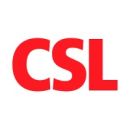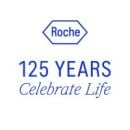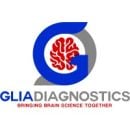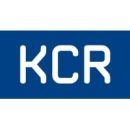Sydney’s biotech industry includes national and local companies, startups and multinational enterprise firms. These organizations focus on treatments for acute and chronic diseases and conditions, as well as on products that integrate healthcare and industry.
Here are the Sydney biotechs to watch.
Biotech Companies in Sydney
- GLIA Diagnostics
- Roche
- NanoMed
- CSL
- Biogen
Biotech Companies in Sydney to Know
CSL makes biotherapeutics for bleeding disorders, immunodeficiency, cardiovascular disease and kidney disease. Its product line includes vaccines, antivenom and blood plasma derivatives, which are used in genetic and medical research. Founded in 1916 as an entity of the Australian government devoted to vaccine research and manufacture, the company privatized in 1994.
Roche is a multinational biotech and pharmaceutical firm, best known as the creator of Valium. Its work in biotech focuses on research and development in treatments and diagnostics, including molecular diagnostics to identify biomarkers of certain conditions and blood glucose management systems for diabetes. Roche also owns several independently operated biotech companies.
Biotechnology company Dexcom offers medical and IoT devices to people who live with diabetes. Its continuous glucose monitors are in-home medical devices designed for 24/7 wear. CGMs provide real-time blood glucose readings as well as high and low sugar alarms. The device is worn on the back of the patient’s upper arm to provide valuable blood sugar and nutrition tracking data to people with diabetes as well as folks who are practicing intentional weight loss.
Evrima Technologies is a clinical trial management company in the biotech space. It works with drug and device companies that have products in development by helping them design and orchestrate clinical trials. The company specializes in recruiting diverse trial subjects from highly specific patient populations and considers itself a research partner. Evrima offers SaaS products for trial management, which includes a clinician search tool as well as software for subject recruitment.
Ancestry is a genealogy company that offers home DNA testing and analysis as a product. After purchase, its customers receive a simple in-home saliva testing kit to complete and submit for analysis by mail. From there, Ancestry uses SNP-genotyping to analyze over 700,000 DNA markers, which allows it to return a list of DNA matches and ancestral origins to the customer.
GLIA Diagnostics researches and develops biotech solutions for traumatic brain injury, concussion and PTSD. Using clinical trials to identify biomarkers of these conditions, its technology’s goal is to create a way to definitively diagnose them. GLIA was founded in reaction to the limitations of the standard siloed approach to medical research.
Biogen is a biotech firm that works on therapies for neurological diseases and other serious conditions, including Alzheimer’s, multiple sclerosis, lupus, spinal muscular atrophy and postpartum depression. Biogen is invested in the creation of biosimilars as a public good, which are cost-saving alternatives to patented name brand drugs. These are different from generics in that they are biologically slightly different than the patented treatments, yet work identically.
KCR is a contract research organization that offers clinical development for biotechnology, pharmaceutical and medical device products. The company’s areas of expertise are immunology and autoimmune disease, the central nervous systems, genes and cell therapies and vaccines. KCR offers an injectable inactivated polio vaccine to the global market.
NanoMed is a nanobiotechnology company, which takes the material principles and techniques of nanoscale, or ultra tiny, biology and applies them to biosystems. NanoMed is focused on the development of diagnostic imaging agents and cancer therapeutics, using lipid-based nanomedicines. Because the scale of nanomedicine is so small, it can subvert the standard risk-to-reward ratio of cancer treatment, in which researchers aim to balance efficacy against toxicity.
Biotech firm AdvanCell is a specialty developer of radiopharmaceutical technology for use in cancer treatment. Radiopharmaceuticals contain radioactive isotopes, which are the backbone of nuclear medicine as well as many diagnostic imaging modalities. Radionuclide drugs are used in targeted alpha-particle cancer treatment, which is used to treat tumors, particularly those that are too small to target through other means.














